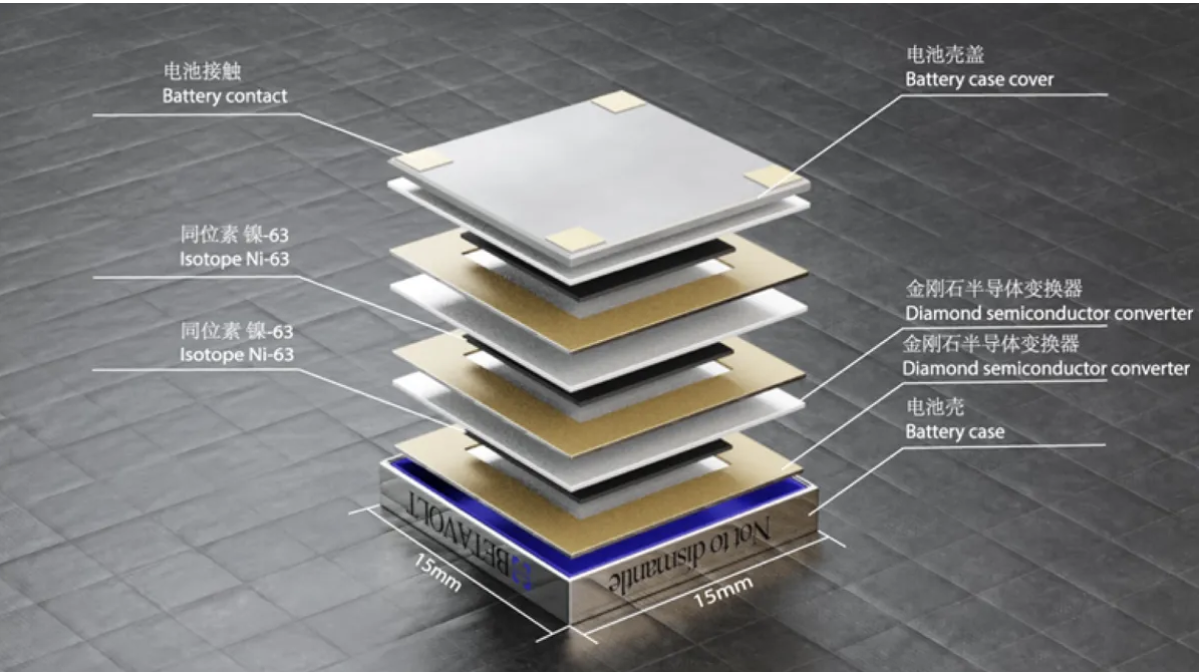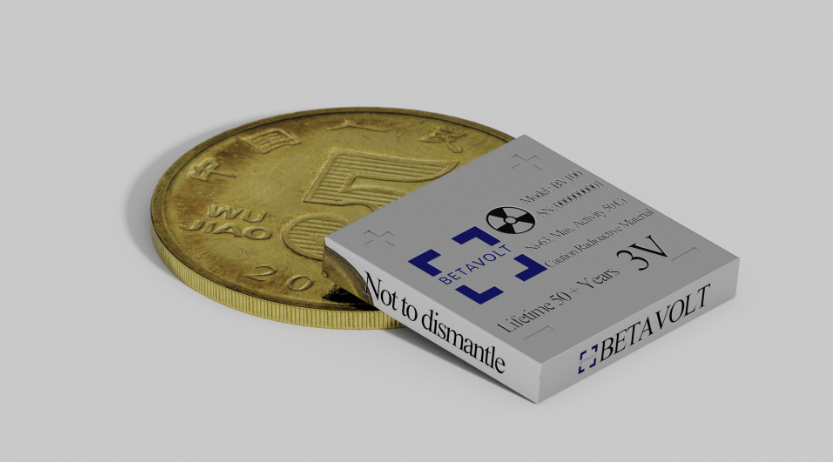While nuclear power is one of the cheapest and cleanest sources of energy out there, it, unfortunately, has a bad reputation due to severe accidents involving nuclear power plants and concerns regarding the disposal of nuclear waste.
However, a company in China has developed a one-of-a-kind battery that may change how we see nuclear power for good.
Betavolt Technology Announces BV100, A Nuclear-Powered Battery That Can Last Up To 50 Years
Betavolt Technology, a start-up company based in Beijing, just recently unveiled BV100, a prototype battery that harnesses the power of nuclear energy as an alternative to our everyday lithium-ion batteries.
But that’s not all.
According to Betavolt, BV100 can has a lifespan of 50 years, and it doesn’t need to be charged for the entire 50 years. This is in stark contrast to the two-to-three-year lifespan of regular lithium-ion batteries, which you’d need to charge almost every day if you’re a heavy user.
This means that BV100 has the potential to outlive most forms of technology (or even some human beings) that will come to use it.
Yes, this means it has the potential to power smartphones and drones indefinitely (eliminating the tedious need to charge them from time to time). The battery may also be a much-needed contribution to healthcare, as it can help increase the longevity of pacemakers for patients suffering from serious heart conditions.
Apart from civilian use, BV100 also serves various military applications, such as powering unmanned technologies to create perpetually flying drones or increasing the durability of deep-sea monitoring devices that need to continually withstand high-pressure conditions.

What exactly gives BV100 the power to provide electricity for decades?
Don’t worry, you don’t need a degree in Chemistry to understand what’s going on.
When we break BV100 into its components, like in the image below, it begins to look a bit like a sandwich.

One important component of the (expensive but sadly inedible) sandwich is nickel-63, which serves as a radioactive source. As nickel-63 breaks down and produces beta radiation, it emits electrons, which is the first step in producing what we know as electricity.
The plate of nickel-63 is then sandwiched between two plates of diamond semiconductors, which convert the electrons produced by the decaying nickel-63 into electric currents, which will be used to power whatever product the battery is used for.
Nickel-63 has a half-life of around 100 years, which means it takes about 100 years to reduce its radioactivity to half, explaining why BV100 remains in good condition decades later.
Is BV100 really safe to use?
According to Betavolt Technology, you won’t have to worry about the battery exploding or catching fire, which is a problem that notoriously plagued the battery that powered Samsung’s Galaxy Note 7 phones.
The Chinese-owned company claims that BV100 is capable of withstanding “temperatures of 120 to -60°C” and is “resistant to punctures and gunfire without catching fire or exploding”.
The company also addressed the possibility of BV100 generating nuclear waste after its disposal, stating that it plans to “record and recycle” each battery once it begins to sell the product. When Nickel-63 decays, it is converted into non-radioactive copper-63, eliminating any threat of pollution.
Rest assured, we probably won’t be growing any extra eyes or limbs anytime soon.
While Groundbreaking, BV100 May Not Be Powering Our Smartphones Just Yet
While BV100 has the potential to power smartphones of the future, that reality is still far on the horizon.
With BV100 measuring only 15 x 15 x 5mm, its size is even smaller than a coin.

According to Juan Claudio Nino, a materials scientist at the University of Florida, BV100’s tiny size produces a measly 100 microwatts, amounting to only 0.01% of the electricity required to power an actual smartphone.
However, Betavolt remains undaunted in its quest to improve and release more powerful versions of its nuclear-powered battery. The company aims to launch a 1-watt battery in 2025, which is much closer to the 2 – 6 W required by a standard cell phone.
For the time being, it suggests that BV100 could be combined in parallel with other batteries to supplement the power directed to smartphone devices.
Would you be jailed for being half-naked in public? Well, the answer will shock you. Seriously. Watch this to the end and you'll understand:



